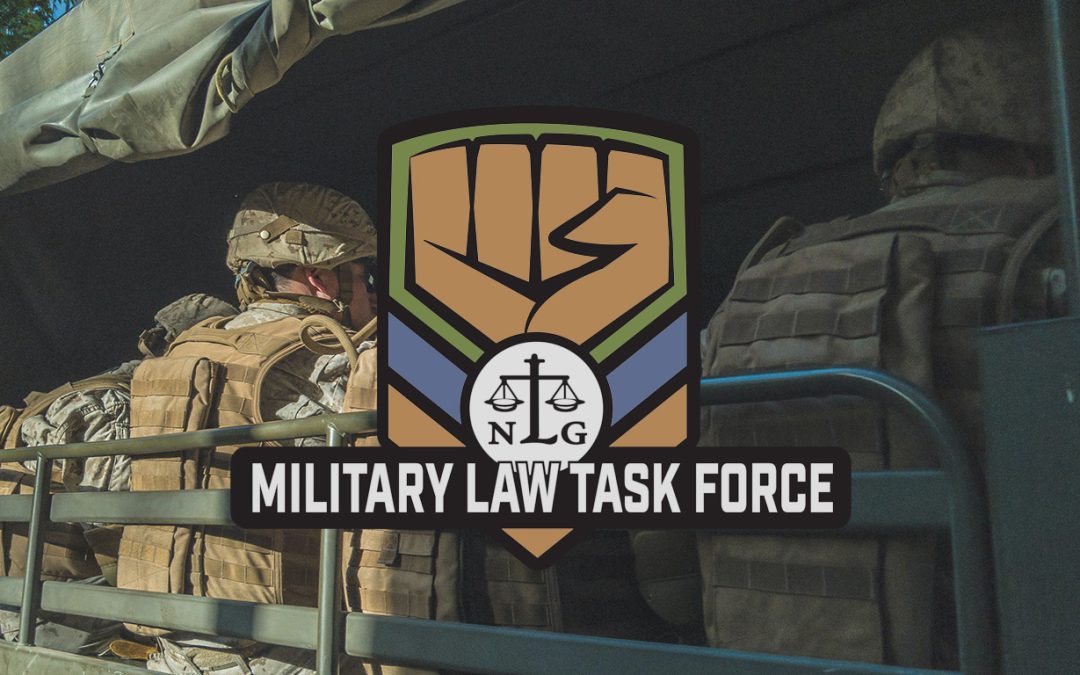Medical Referral Network
Military personnel often need independent medical evaluations and treatment, and this need has increased dramatically as the war in Iraq progresses. Soldiers and sailors face a command system and medical care system in which illness and injury are sometimes viewed as obstacles to the military mission, inconveniences to local commands, or even malingering. Growing numbers of soldiers and sailors find it difficult to see a military physician, particularly psychiatrists or other specialists. Medics and corpsmen, with far less than LVN-level training, serve as “gatekeepers” to the medical system in the most derogatory use of the term. Personnel shortages and pressure to deploy and re-deploy troops rapidly to Iraq and Afghanistan place great pressure on military doctors, who are not able to cope with the large number of patients and with impatient commands. Misdiagnoses and under-diagnoses of physical and psychiatric illness are common.
We hear increasing reports of soldiers with serious physical problems, often with very obvious symptoms, who are turned away at sick call or told to seek help after they are activated or deployed. Marines and Army personnel face deployment to combat zones while suffering serious illnesses that have not yet been fully evaluated, or for which treatment is just beginning. Combat soldiers diagnosed with severe depression or with post-traumatic stress disorder are being sent into combat when newly-diagnosed and just beginning a trial of medication. Others with serious neurological or cardiac symptoms are being deployed and told to seek treatment in Iraq.
Civilian doctors can provide invaluable assistance through independent evaluations, to provide military doctors and commands with accurate diagnoses and treatment recommendations. Diagnostic reports help soldiers to gain access to military doctors, particularly to specialists, and make it less likely that unsympathetic commands will block visits to sick call or military hospitals.
In many cases, soldiers and sailors need an independent opinion of initial diagnoses made by military medics or doctors, or independent advice about treatment options and the impact of military service on their illness or injury. This is particularly true in psychiatric cases, where initial diagnoses are often made by non-physicians or GPs after ten- or fifteen-minute evaluations and with biased reports from local commands. In addition, some servicemembers become so distrustful of the military medical system that they need independent evaluations for their own peace of mind, or independent treatment because of legitimate complaints about their treatment in military clinics.
Although the military medical system tries to prepare for the most obvious war-related medical problems — combat wounds and related injuries — the system is surprisingly inadequate in its ability to diagnose and care for combat-related psychiatric problems, neurological injuries arising from combat, and the range of neurological and systemic illnesses of unknown causes. Just as Agent Orange victims during the Indochina War had difficulty establishing diagnoses and obtaining appropriate treatment, veterans of the 1991 Gulf War encountered uncertainty and sometimes indifference when they developed symptoms of Gulf War Syndrome. Now doctors are beginning to see a range of physical symptoms and systemic illness without a known origin, but the military’s medical system is too overwhelmed to provide good epidemiology, and thorough evaluation and care in individual cases.
Most commonly, civilian doctors are asked to evaluate military patients and prepare reports with diagnosis, prognosis and treatment recommendations. Where doctors find it appropriate, specific recommendations about limited duties or medical discharge are helpful as well. Doctors can often assist patients in interpreting and evaluating military medical conclusions and recommendations. This seldom requires any follow-up action; physicians who cannot spare time for communications with commands or military doctors, or who want to avoid involvement in legal proceedings, are able to do so without limiting their value to military clients. At the same time, doctors who enjoy forensic medicine are also needed for cases in which servicemembers face court-martial for “misconduct” related to their medical condition, or in disability proceedings when the military attempts to deny medical benefits to servicemembers no longer able to perform their duties. In some cases, doctors and psychiatrists may be asked to provide some on-going consultation or medical care for members who are not receiving proper care through the military; though that situation can often be improved through outside medical recommendations.



